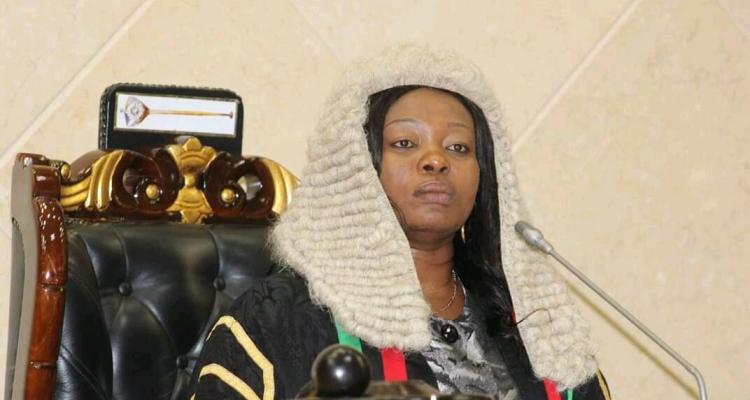
Malawi, therefore, has a unicameral legislature in practice. The National Assembly has 193 members of Parliament (MPs) who are directly elected in single-member constituencies using the simple majority (or first-past-the-post) system and serve five-year terms.
Malawi operates under a unicameral legislature, a political system that features a single parliamentary chamber responsible for crafting and passing legislation.
The National Assembly, which is the primary legislative body in the country, plays a crucial role in shaping Malawi’s governance, policy, and national laws. With 193 Members of Parliament (MPs), the National Assembly is central to the country’s democratic processes and governance framework.
The National Assembly in Malawi comprises 193 MPs, all of whom are directly elected by the public. These elections take place every five years, giving the people the power to choose their representatives through a democratic process. Malawi’s legislative system is based on a simple majority (or first-past-the-post) voting system, where the candidate with the most votes in each single-member constituency is elected to represent that area.
This voting system, while straightforward, has sparked debate over the years for not always accurately reflecting the diversity of political views across the nation. However, it remains in place as the method for determining Malawi’s parliamentary representatives.
The National Assembly of Malawi is responsible for making and reviewing laws, approving budgets, and holding the government accountable. MPs are tasked with representing their constituents’ interests and ensuring that their voices are heard in legislative matters. They participate in debates, vote on proposed laws, and provide checks on the executive branch of government.
The Assembly plays a critical role in shaping policy and legislation that affects all Malawians. It also serves as a platform for the opposition to challenge the government and hold it accountable for its actions.
The Speaker of the National Assembly presides over the legislative process and ensures that proceedings are conducted in an orderly manner.
As mentioned, MPs are elected in single-member constituencies using the first-past-the-post system. Each constituency elects one representative to serve in Parliament. This system has both advantages and disadvantages.
On one hand, it ensures that every constituency has a clear representative, making it easier for voters to identify who is responsible for their interests in the legislature.
On the other hand, it can sometimes lead to results that don’t fully reflect the overall distribution of voter support across political parties, as it tends to favour larger parties with a more widespread base of support.
The election of MPs is a pivotal event every five years, offering Malawians the opportunity to either endorse the current leadership or elect new representatives. The system ensures that Parliament is continually responsive to the people’s will and reflects changes in political sentiment.
The primary functions of Malawi’s National Assembly include lawmaking, budgeting, and oversight.
One of the core responsibilities of the National Assembly is the creation, amendment, and repeal of laws. MPs debate and vote on proposed bills, and laws are only enacted when approved by the Assembly.
The National Assembly reviews and approves the national budget proposed by the government. This is a critical function, as the budget determines the allocation of resources for public services, development projects, and other government priorities.
MPs also hold the executive accountable by questioning ministers, examining government policies, and investigating corruption or mismanagement. Parliamentary committees are formed to scrutinize specific issues, such as finance, health, education, and defence, ensuring that the government is operating transparently and within the law.
Malawi’s unicameral system has certain advantages over a bicameral system, where there are two chambers of Parliament.
A unicameral legislature is typically more efficient because it has fewer hurdles for a bill to pass through. In Malawi, a proposed law only needs to be debated and approved by the National Assembly, streamlining the legislative process.
Maintaining a single chamber of Parliament reduces the financial burden on the government, as there are fewer MPs to pay, fewer administrative costs, and lower operational expenses.
A unicameral system makes it easier for the public to understand the legislative process, as there is only one chamber responsible for passing laws. Citizens can focus on the activities of their elected representatives without the added complexity of two legislative bodies.
Despite its advantages, the unicameral system has its critics. Some argue that the absence of a second chamber, such as a Senate, reduces the checks and balances that might prevent hasty or poorly considered legislation from passing. A bicameral system, they argue, would allow for a more thorough review of proposed laws, ensuring that all sides of an issue are carefully examined before a decision is made.
Others point out that the first-past-the-post system, while simple, can lead to a lack of proportionality, as it tends to favour larger parties with broad support, while smaller parties or independent candidates may struggle to secure representation. This can sometimes result in a Parliament that doesn’t fully reflect the diversity of political opinions in the country.
Malawi’s unicameral National Assembly plays a central role in the country’s governance, providing a platform for the people’s voices to be heard through their elected representatives. While the first-past-the-post system and the absence of a second chamber may present some challenges, the system remains an integral part of Malawi’s democratic framework.
As the 2025 elections approach, the continued importance of the National Assembly will be highlighted, with voters heading to the polls to select their MPs and shape the legislative direction of the country for the next five years.
The unicameral legislature, with its emphasis on efficiency and direct representation, will remain a fundamental component of Malawi’s political landscape, ensuring that the country’s democratic values are upheld in the years to come.














